From June 26th to 30th, Dean Zhao Changying and his team from the China-UK Low Carbon College of Shanghai Jiao Tong University visited three renowned British institutions: the University of Edinburgh, the University of Warwick, and University College London (UCL). During their visit, they organized two faculty recruitment seminars in Edinburgh and London. The purpose of this trip was to further strengthen the collaboration and exchange between the LCC and British institutions in fields such as carbon finance, climate change, and energy. And aimed to attract top overseas talents, enhance the international academic influence of the LCC, and set a new course for its global quality and connotation.
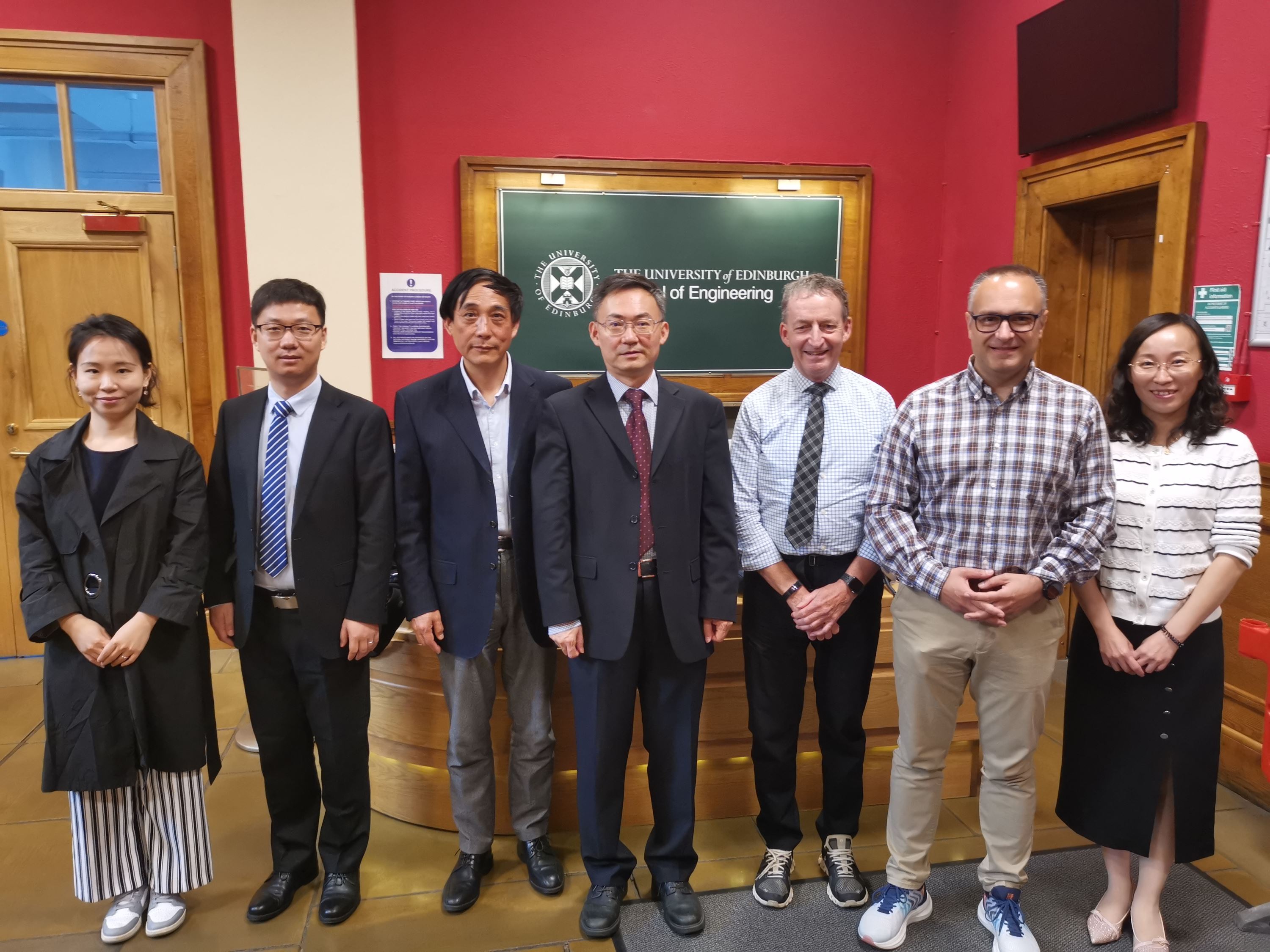
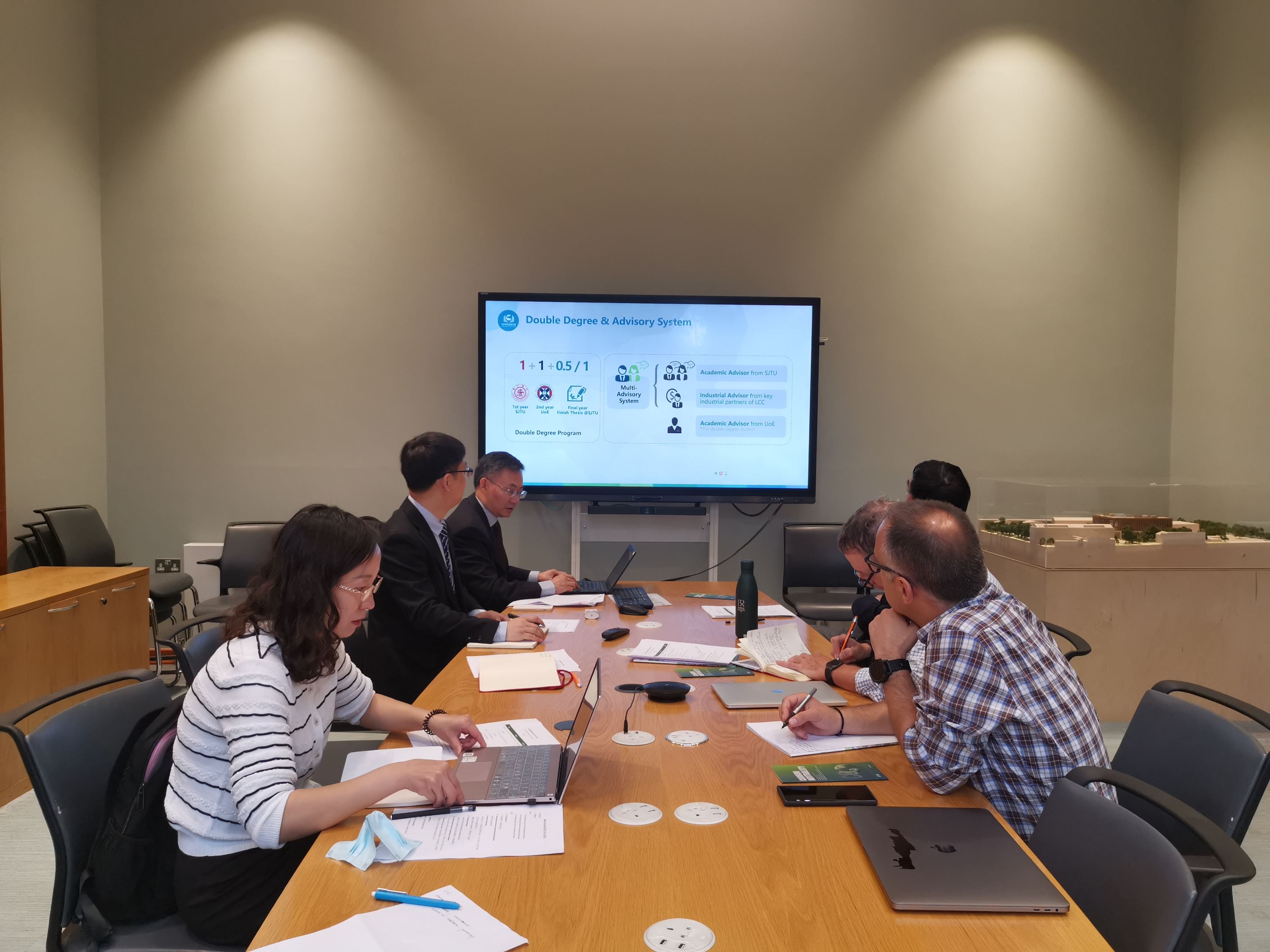
At the University of Edinburgh, the delegation first visited the College of Engineering, where they engaged in profound discussions with Professor Ian Underwood, Head of International Relations, Professor Aristides Kiprakis, Head of International Student Affairs, and Professor Xianfeng Fan. Dean Zhao Changying introduced the latest developments of the China-UK Low Carbon College. Both parties discussed research collaboration, talent cultivation, course development, and mutual visits. They plan to deepen their research collaboration based on the current seed fund cooperation, setting a foundation for joint research labs. In terms of scientific research, we will further deepen and expand scientific research cooperation on the basis of this round of seed fund cooperation, and lay a good foundation for applying for joint scientific research laboratories in the future. In terms of personnel training, we hope to further strengthen the exchange and joint training of students on the basis of previous cooperation. In terms of curriculum construction, the University of Edinburgh is invited to continue to cooperate in setting up low-carbon courses, try to co-build and share online courses, and invite to participate in the 2024 International Summer School to teach. The two institutions expressed their intention to consolidate their partnership and explore new avenues for cooperation.
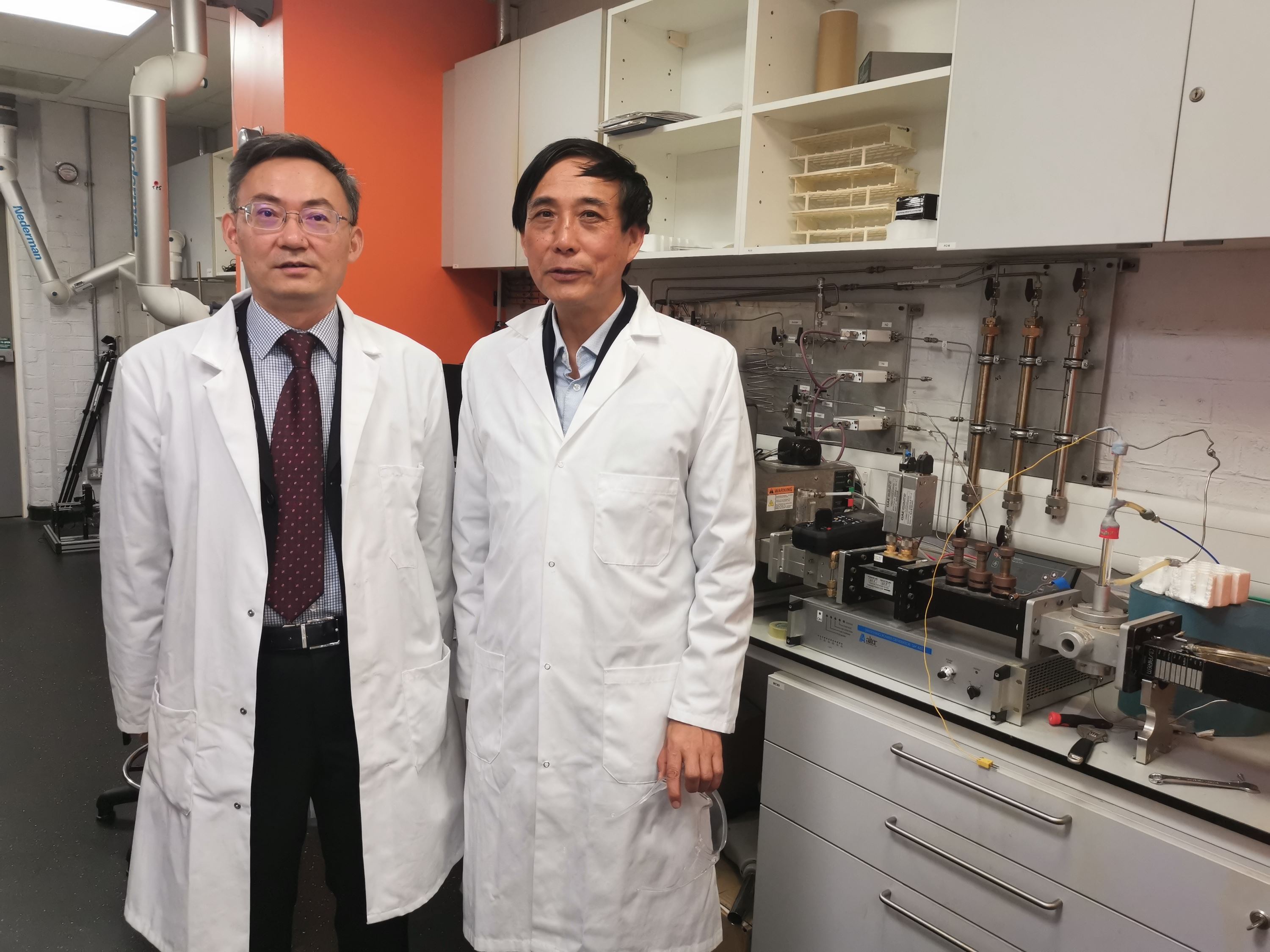
.jpg)
During the visit, the delegation toured Professor Xianfeng Fan's laboratory and delved deep into discussions on carbon capture, hydrogen catalysis, and biomass.
.png)
On the afternoon of the same day, the delegation visited the Business School at the University of Edinburgh. They engaged in research discussions with over 10 scholars in the carbon finance field, including Ian Cochran, Director of Research Impact at the Centre for Climate Finance and Sustainable Development, Joint Director of Research Development Mengfei Jiang, Joint Director of Curriculum Development Yue Liu, and Associate Professor Matthew Brander. Both parties plan to continue deepening their collaboration in research, teaching, and course development, and jointly build competitive disciplines in the fields of carbon finance and sustainable development.
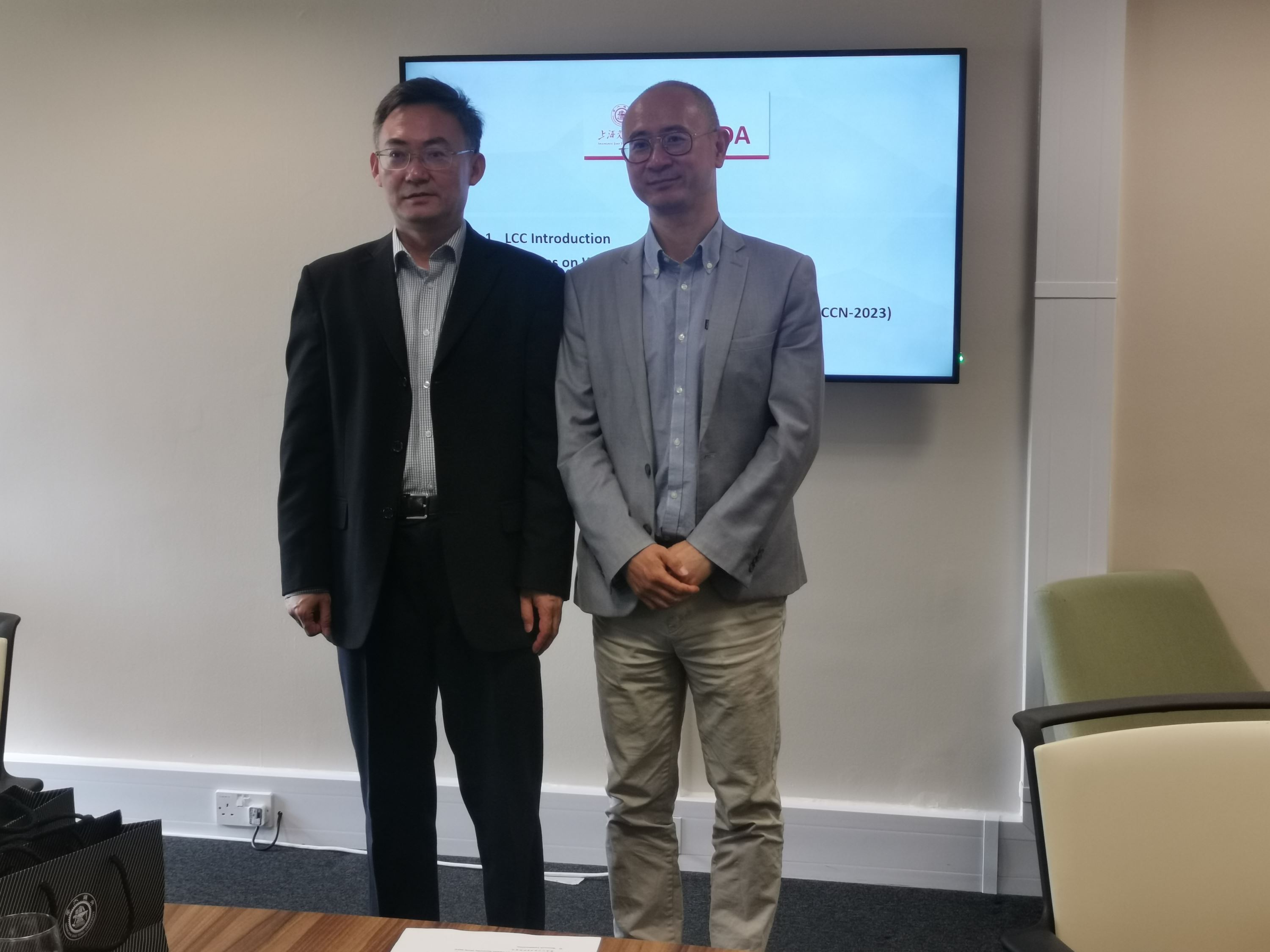
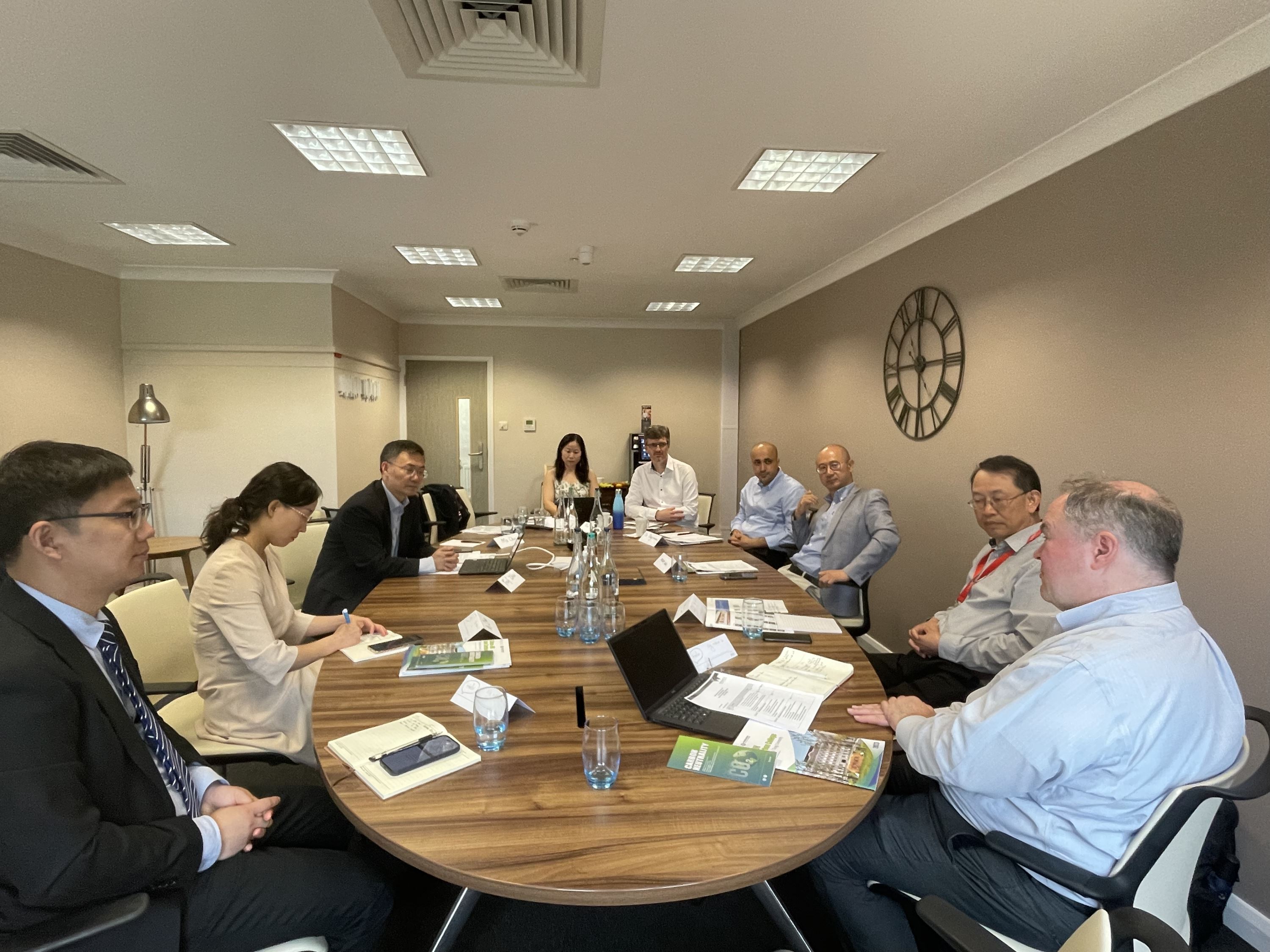
.jpg)
During their visit to the University of Warwick, the delegation was received by Professor Sai Gu, Vice-Chancellor of the University of Warwick. Professor Peter Gammon, Associate Dean for Scientific Research of the School of Engineering, Professor Bob Critoph, Senior energy expert, Professor David Elmes, Head of the Global Energy Research Group of the School of Business, Academic Director of the Global Energy MBA Program, and representatives of relevant schools attended the conference. Professor Sai Gu, on behalf of the University of Warwick, welcomed the delegation from the Low Carbon College, and said that Shanghai Jiaotong University is an important partner of the University of Warwick. The two universities have cooperated for a long time, and the two sides have established profound cooperation in seed funding and personnel training. Dean Zhao Changying introduced the development of the China-UK Low Carbon College and the history of cooperation with the University of Warwick. Professor David Elmes introduced the distinctive green buildings of the University of Warwick and the achievements made in low carbon building energy management. The two sides held in-depth discussions on teacher research cooperation, low-carbon park construction, personnel training, curriculum construction and other aspects, and expressed their willingness to further expand cooperation in high-end training, building energy consumption management and other fields. Afterwards, Professor David Elmes and Professor Sai Gu led the delegation from the Low Carbon School on a tour of the low carbon buildings at the University of Warwick.
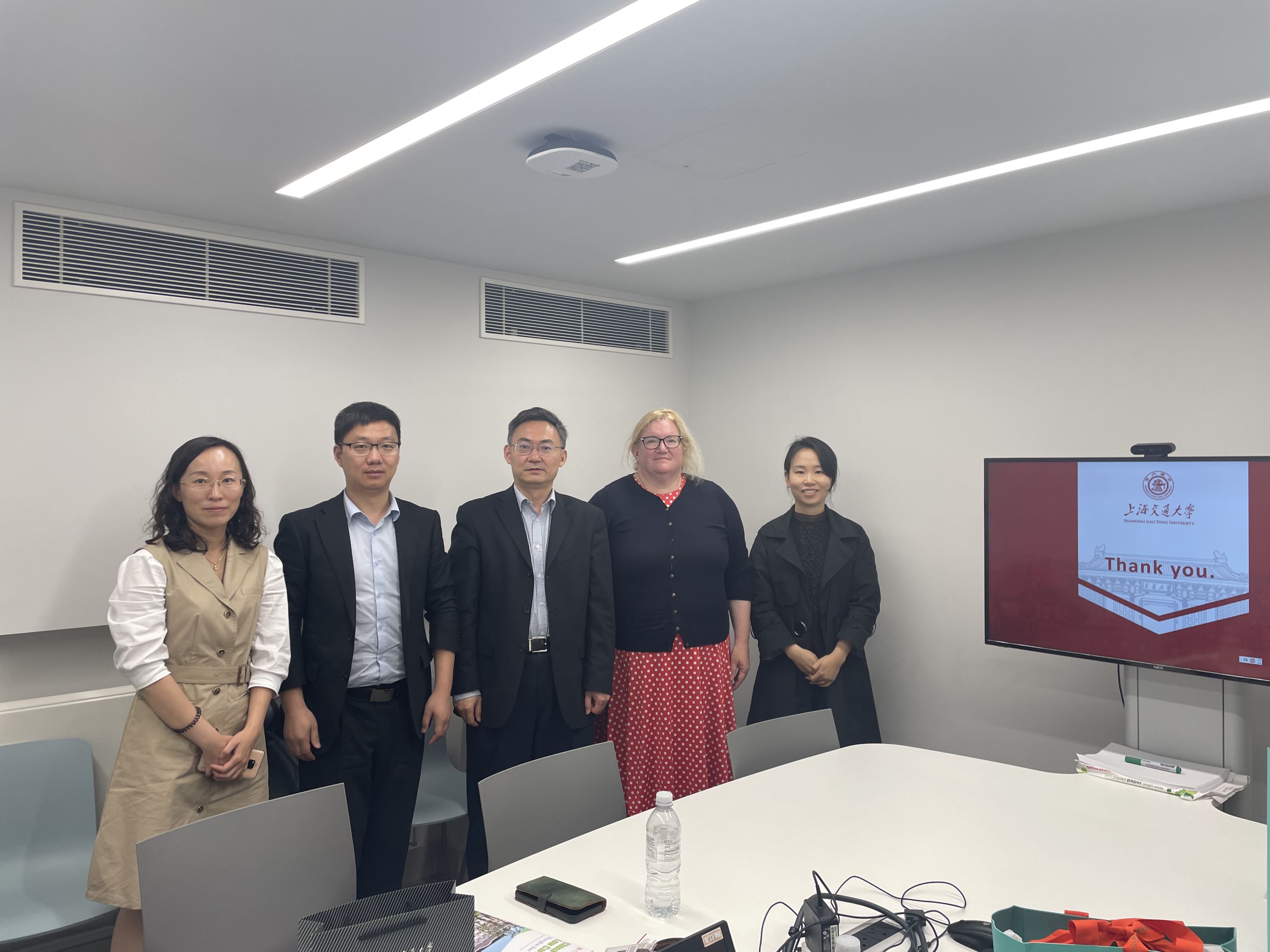
At UCL, the delegation visited the Bartlett School of Architecture and met with Professor D 'Maris Coffman, Associate Dean of the Bartlett School. Zhao Changying introduced the relevant situation of the Low Carbon School, the Low carbon School and Bartlett School of Architecture signed a memorandum of cooperation in 2017, over the years, the two houses have carried out close teaching and research cooperation in low-carbon related fields such as circular economy, and jointly held a number of bilateral seminars. D 'Maris Coffman introduced the general situation of the school, fully affirmed the profound friendship accumulated by long-term exchanges and cooperation between the two sides, and said that the two sides have a lot of research crossover in the fields of climate change, low-carbon energy technology, sustainable development, CCUS and other fields. It is hoped that in the future, the two sides will give full play to their respective research advantages in low-carbon technology, sustainable development and low-carbon buildings, promote scientific research exchanges and cooperation to a higher level, and further expand cooperation in a wider range of fields.
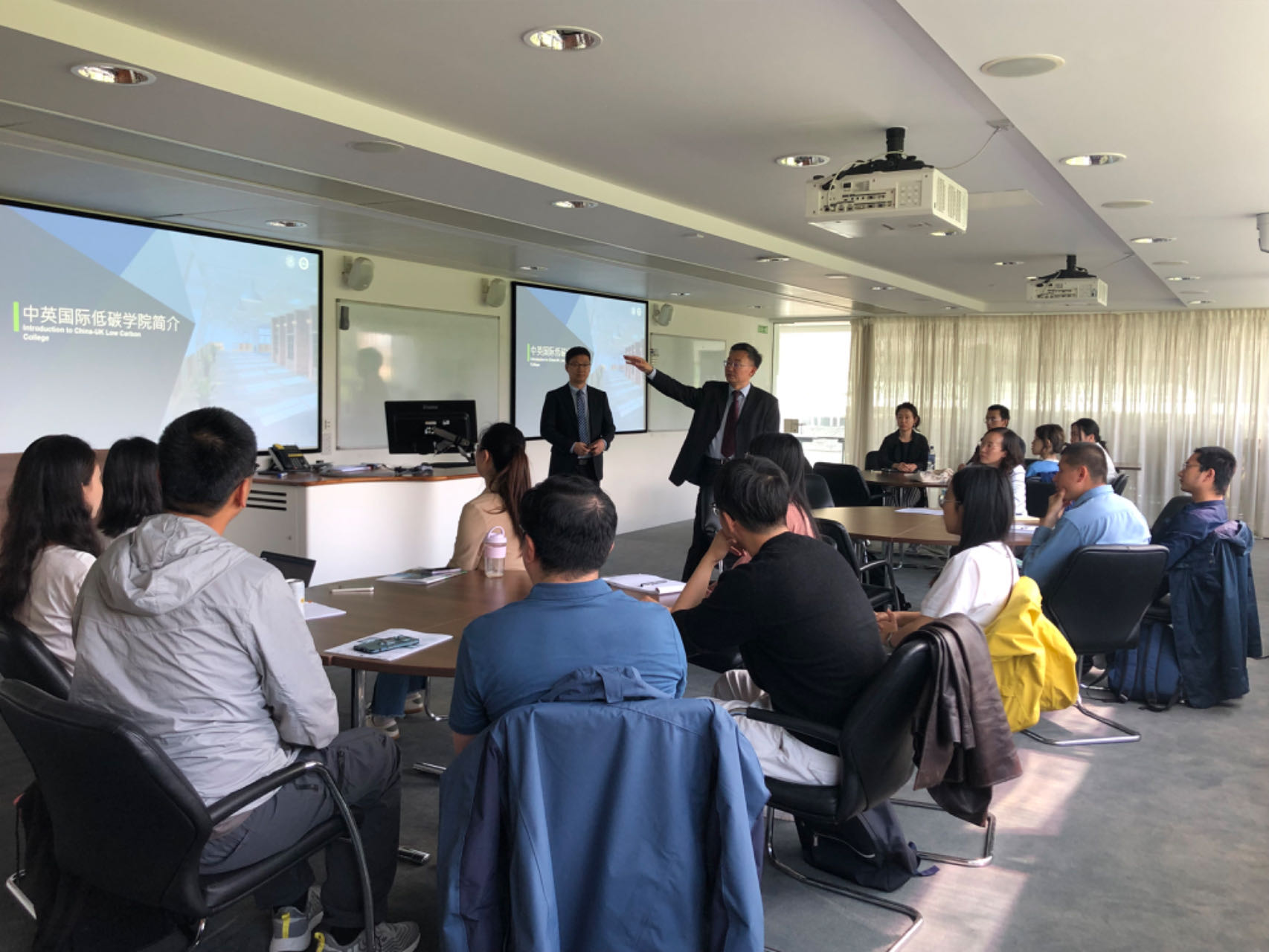
In the same period, the Low Carbon College held two UK teacher recruitment symposiums in Edinburgh and London respectively, attracting more than 40 scholars from University College London, University of Edinburgh, University of Cambridge, University of Oxford, Imperial College London and other top universities in the UK. Dean Zhao Changying introduced the overall situation of the college, as well as the relevant policies of overseas talent introduction, and had a cordial discussion with the participating young scholars for in-depth exchanges.
This visit strengthened and consolidated the partnership network between the College and relevant universities in the UK, built a high-level talent exchange platform, and further expanded the teaching and research cooperation in the field of low-carbon. The Low Carbon College will also continue to deepen international cooperation, strengthen cross-border academic exchanges and collaborative development, highlight the international characteristics of the college, and build an international research platform with low carbon characteristics.
LCC Delegation Visits the UK and France
2025-12-16